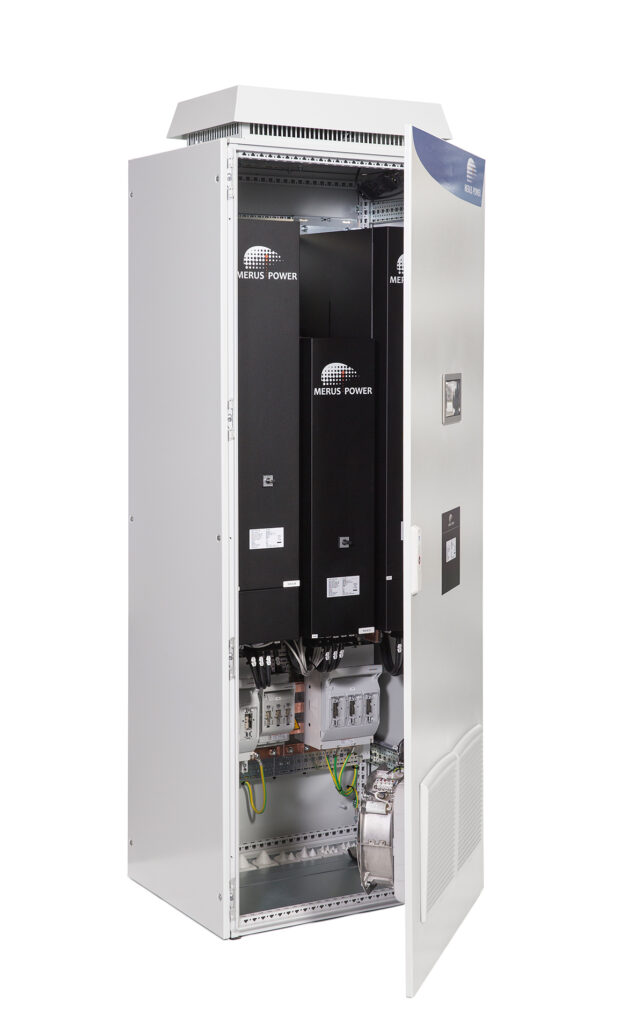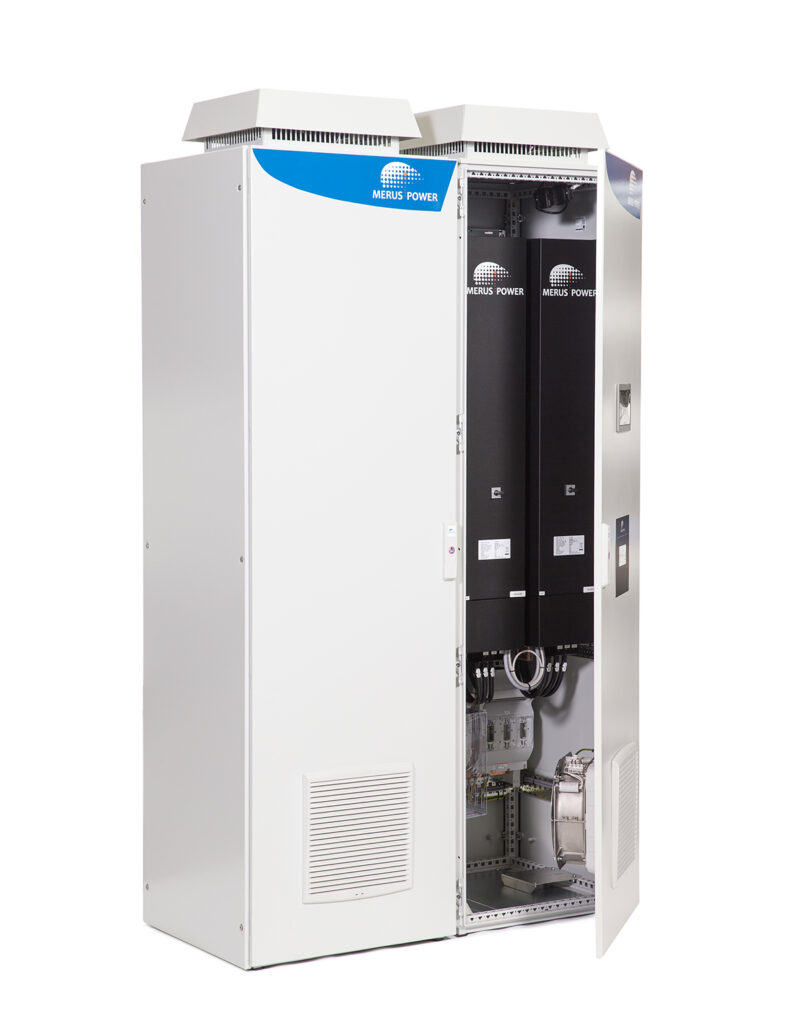
Is your Power Factor Correction system meeting today’s needs?
Why power factor correction matters
Power factor correction (PFC) is used to improve the efficiency of electrical power systems by producing reactive power locally instead of letting the electrical system draw current from the mains. The need in PFC is evident when the phase of voltage and current waveforms are not aligned. In ideal conditions, voltage and current should peak simultaneously, resulting in a power factor of 1. However, various electrical devices, especially those with inductive loads like motors and transformers, can cause the current to lag behind the voltage, leading to a lower power factor.
A low power factor indicates inefficient power usage, which can lead to several issues:
- Increased energy losses: More current is required to deliver the same amount of power, causing additional losses in the electrical system.
- Higher electricity costs: Utilities may impose penalties for low power factor, resulting in increased operational expenses.
- Reduced system capacity: The electrical infrastructure can handle less active power, potentially necessitating costly upgrades to accommodate additional loads.
Implementing PFC helps mitigate these problems by only reducing reactive power, thereby enhancing the overall efficiency and capacity of the power system.
Is your current PFC system keeping up?
Many companies already have power factor correction systems in place. However, these systems may have become outdated due to changes in load profiles, aging components, or the addition of new equipment. An older PFC system that once worked efficiently might no longer meet current requirements, potentially leading to inefficiencies, higher operational costs, and extra fees. If the electrical system, in addition to fast fluctuating reactive power, also has high harmonics contamination, this will result in various disturbances such as operational interruptions, equipment malfunctions, overheated transformers, burnt fuses, etc.
It’s essential to regularly reassess your PFC setup to ensure it remains effective and aligned with your current needs. Upgrading to modern Merus Power’s PFC solution—which combines both passive and active compensation technology—can deliver immediate benefits, including better energy efficiency, lower electricity bills, and improved system capacity.
Merus Power helps upgrade existing PFC systems
Merus Power offers advanced solutions to not only install new PFC systems but also upgrade and enhance your existing infrastructure. By integrating modern technology into your current setup, you can achieve:
- Enhanced efficiency with dynamic reactive power compensation
- Reduced downtime through reliable, future-proof systems
- Cost savings by eliminating inefficiencies and avoiding penalties
Merus Power’s solutions for efficient power factor correction
Merus® A2
Active Harmonic Filter

Merus® HPQ
Hybrid Power Quality Compensator

Merus® A2-Active Harmonic Filter is a high power density, compact, and modular solution that offers an all-in-one approach combining instantaneous harmonic mitigation, reactive power compensation, and correction of unbalance that ensures compliance with the most demanding power quality standards. Merus® A2 modules are the ultimate answer to power quality problems caused by waveform distortions, a low power factor, voltage variations and fluctuations, and load unbalance.
Merus® HPQ-Hybrid Power Quality Compensator is the perfect solution for replacing old capacitor banks with economical and reliable 21st-century technology. Its hybrid operation is based on combining two main components: a detuned capacitor bank and an active harmonic filter, securing efficient and step-less PF correction, harmonics mitigation, and fundamental current balance.
Future-proof your operations with Merus Power
By upgrading your PFC system with Merus Power’s solutions, you enhance energy efficiency, reduce operational costs, and extend the lifespan of your electrical equipment. Regular evaluations and updates ensure that your system remains effective and suitable for today’s operational demands.
Do you have any questions?
Please contact one of our salespeople with questions and inquiries.

Riku Kalliomaa
Head of Sales, Active Harmonic Filter
Regions & Channels

Mikko Pohjola
Sales Manager, Active Harmonic Filter,
Key Accounts & OEMs

Viktoria Mansikkala
Sales Manager, Active Harmonic Filter
Baltics & Eastern and Southern Europe

Juhani Jaatinen
Senior Sales Manager,
DACH, Benelux, France, APAC

Venkatesh Ramachandra
Regional Sales Manager,
Middle East
